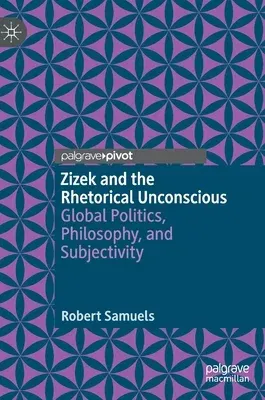Robert Samuels
(Author)Zizek and the Rhetorical Unconscious: Global Politics, Philosophy, and Subjectivity (2020)Hardcover - 2020, 7 August 2020

Qty
1
Turbo
Ships in 2 - 3 days
In Stock
Free Delivery
Cash on Delivery
15 Days
Free Returns
Secure Checkout

Print Length
99 pages
Language
English
Publisher
Palgrave MacMillan
Date Published
7 Aug 2020
ISBN-10
3030509095
ISBN-13
9783030509095
Description
Product Details
Author:
Book Edition:
2020
Book Format:
Hardcover
Country of Origin:
NL
Date Published:
7 August 2020
Dimensions:
21.01 x
14.81 x
0.97 cm
ISBN-10:
3030509095
ISBN-13:
9783030509095
Language:
English
Location:
Cham
Pages:
99
Publisher:
Weight:
294.83 gm